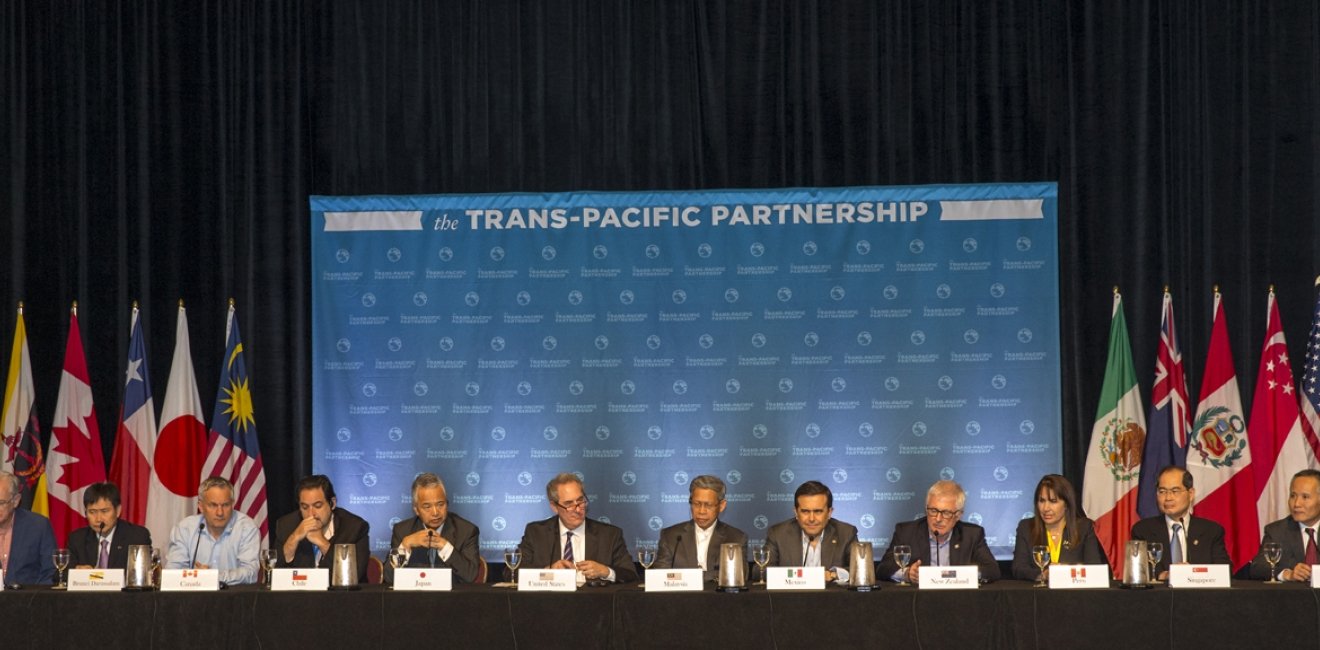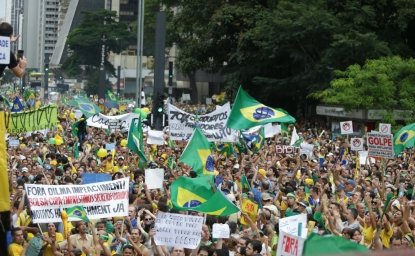In the Hunt for a “Level Playing Field,” Anticorruption Efforts Play a Major Role
The United States has a leading role to play in the global fight against corruption.
The United States has a leading role to play in the global fight against corruption.

In competing in the global economy, U.S. businesses are always seeking the proverbial “level playing field.” In areas such as international trade, this means that the United States works with other countries to negotiate rules that all agree will help their respective economies. Cooperation is key.
The Trans-Pacific Partnership (TPP) is a prime example, in which the United States and 11 other countries have agreed to reduce tariffs while addressing nontariff barriers to trade in goods and services. Everyone plays on the same field; everyone plays by the same rules. Business benefits, and so do each country’s citizens.
Other times, it’s up to the United States to act. Three decades have passed since the United States last reformed its tax system, while other countries lowered their tax rates and modernized how they tax global earnings. Today, the United States has the highest corporate tax rate in the developed world and discourages the repatriation of earnings made abroad.
The result is an uncompetitive tax system that discourages investment, hiring, and economic growth. Washington alone bears responsibility for this flawed system, and it will take Congress and the president to fix the problem. Only then will the United States produce a playing field on which it can compete without disadvantage.
The fight against grand corruption is a case where both approaches are necessary: global cooperation is essential, and the United States must also take the lead.
With enactment of the pioneering Foreign Corrupt Practices Act (FCPA) in 1977, the United States outlawed the bribing of foreign officials — and in the process made companies, their officers, and third parties liable for corruption offenses anywhere in the world. Perhaps just as important, the FCPA created accounting rules that stress transparency, designed to “strengthen the accuracy of the corporate books and records and the reliability of the audit process which constitute the foundations of our system of corporate disclosure.” And strict enforcement by the Justice Department and the Securities and Exchange Commission reinforces compliance by all U.S. companies, everywhere in the world — the very definition of a level playing field. The FCPA and its various updates set a model for anticorruption efforts worldwide, pursued by individual countries, the United Nations, the Organization for Economic Cooperation and Development, and other multinational conventions.
As the essays in this Wilson Center Perspectives collection demonstrate, these efforts have grown in seriousness and reach in recent years. And, as with the United States, for campaigns against corruption to succeed, individual countries — driven by reform-minded officials and the demands of the public — must build on international institutions and relationships.
For multinational companies, “the stakes have never been higher,” the Gibson Dunn law firm reported in its 2015 Year-End FCPA Update. “Anti-corruption enforcement is now a global endeavor with regulators around the globe focusing their sights on those who seek to profit on the corruption of government officials.”
The fight against grand corruption is a case where both approaches are necessary: global cooperation is essential, and the United States must also take the lead.
One opportunity that must not be missed is the TPP, which fully embraced this kind of multinational cooperation against corruption, a fact rarely mentioned in the often heated debate over the agreement. With the United States taking the lead, negotiators included strong anticorruption provisions that are new to trade agreements.
The dozen countries that signed the agreement are required to adopt laws to prosecute bribery and corruption. They must also ratify the United Nations Convention against Corruption and are encouraged to observe the Asia-Pacific Economic Cooperation’s Anti-Corruption Code of Conduct for Business.
Most important, these obligations are subject to the TPP’s dispute settlement procedures. With several of the signatories having a poor record on corruption, this kind of enforcement provision represents real progress. The TPP also reconfirms the importance of transparency. It requires the publication of laws and regulations, due process in administrative proceedings, and the prompt review of administrative action by independent tribunals.
The U.S. business community has widely embraced the TPP, recognizing that its removal of tariffs and nontariff barriers to trade among the 12 countries would give a big boost to job-creating U.S. exports of goods and services. But the anticorruption provisions are critical as well. U.S. companies overwhelmingly play by the rules when engaging in international trade, and the TPP will compel the others to do the same. Its enactment will also lend powerful momentum to anticorruption campaigns around the world.
All that’s required now is for Congress to pass the agreement. A more level playing field among the TPP countries is indeed attainable—if Washington takes the lead.
John Engler is president of the Business Roundtable.


